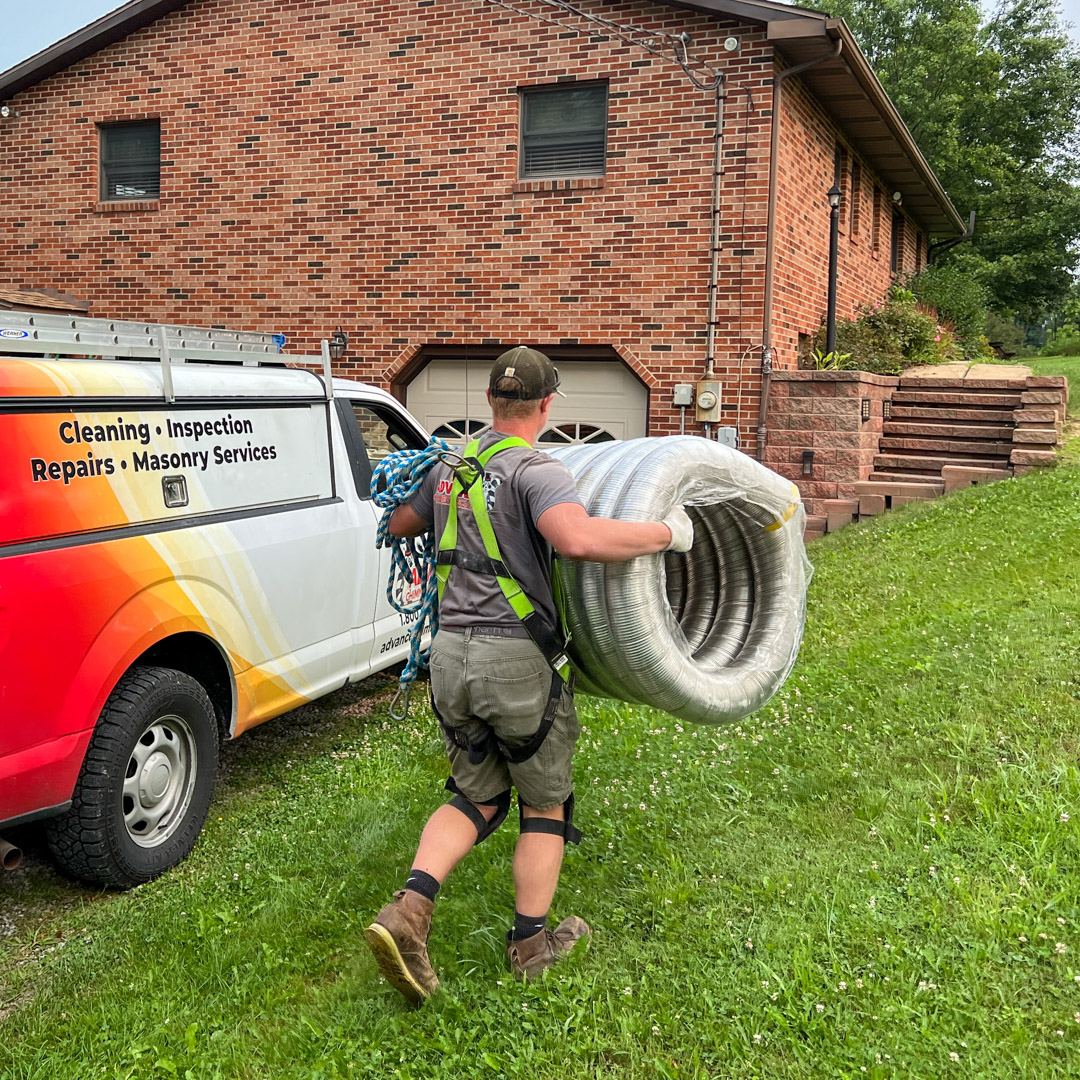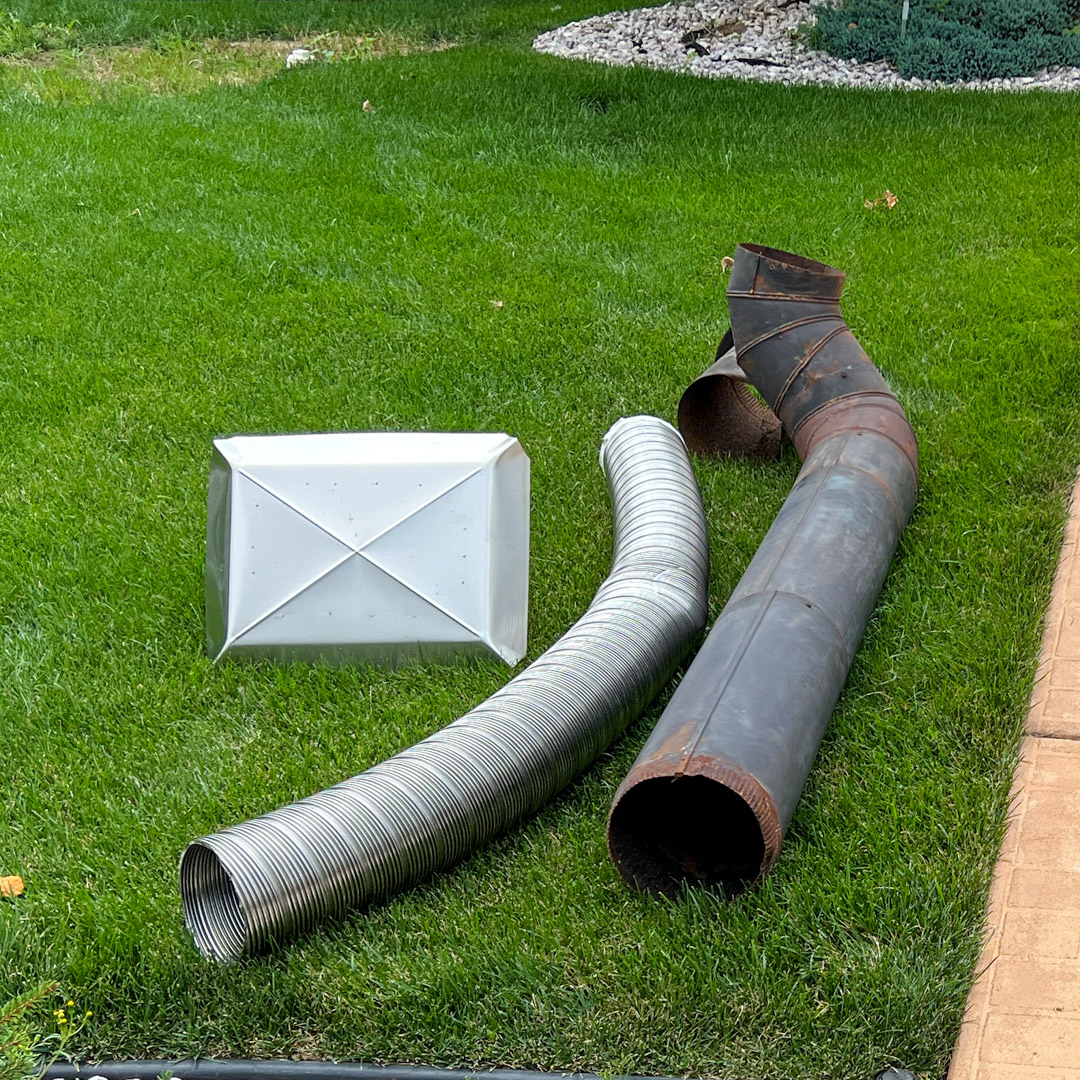Should You Insulate Your Chimney Liner?
Most homeowners understand the importance of insulating their homes. A properly insulated home keeps the interior warmer in the winter and cooler in the summer. In addition to making us more comfortable during seasonal weather changes, it improves energy efficiency and reduces utility bills. However, many homes in Greater Pittsburgh have an uninsulated chimney liner, which can make it challenging to maintain a fire in the fireplace. With that in mind, here are several reasons why you should insulate your chimney liner.
Insulated Vs. Uninsulated Stainless Steel Liner
So, what’s the difference between an insulated stainless steel liner and an uninsulated one? The major difference is that an uninsulated steel chimney liner can cause several problems, some of which can be quite dangerous. For starters, the colder air in the chimney can impede a proper draft. This insufficient draft allows the flue gases to cool rapidly, making it difficult to ignite your fireplace and maintain a fire. It also promotes the formation of creosote deposits, a highly flammable by-product of combustion that clings to the liner and masonry walls
An insulated chimney liner addresses cold chimney issues and offers several benefits:
- Improves the draft
- Flue heats faster
- Maintain hotter fires
- More efficient combustion
- Reduces creosote accumulation
Types of Insulation
Only insulation material specified for use in chimney flues should be used. The two common types of insulation are:
Insulation Blanket
An insulation blanket is a high-density alkaline earth silicate material that creates a thermal barrier. It is wrapped around the entire length of the chimney liner. The insulation blanket helps prevent condensation and creosote accumulation, which are a fire and health hazard. However, an insulation blanket increases the diameter of the liner, which may not be suitable for some flues and appliances. Thus, it is imperative to consult with a qualified chimney professional to ensure compatibility before installation.
 Vermiculite Insulation
Vermiculite Insulation
The other type of chimney insulation is called vermiculite, a mixture containing Portland cement that is poured into the space between the chimney liner and the flue. As the vermiculite cures, it solidifies into a durable insulating layer that effectively enhances thermal efficiency. Vermiculite insulation not only protects the chimney and your home from heat transfer but also contributes to a safer, more efficient venting system for your fireplace or stove, reducing the risk of heat-related structural damage and improving overall appliance performance.
Insulation Installation
Installing chimney liner insulation should only be performed by a qualified chimney professional. A professional can determine the correct type of insulation for your specific chimney flue and ensure that the installation complies with all safety codes. Improper installation can be dangerous and may negate the benefits.
Chimney Liner Insulation Installation in Western Pennsylvania
Ready for a more enjoyable fire-burning experience? Advance Chimney Sweeps is your local provider for the professional installation of chimney liner insulation to keep your heating appliances running efficiently. Whether you need assistance with a fireplace, insert, or stove, our team of certified experts is here to help. We proudly serve communities across Greater Pittsburgh, including Braddock, Millvale, Crafton, and Fairmont, WV. Visit our website at https://www.advancechimney.com/contact-us/ to book your appointment today! Don’t forget to ask about our flexible financing options!








